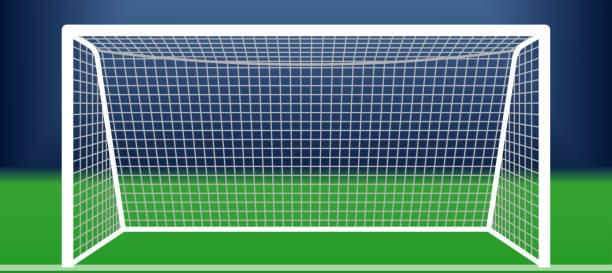













GOOD FOOTBALL ETHICS.

Good football ethics are essential to maintaining the integrity, fairness, and sportsmanship of the game.
Ethical behavior in football ensures that players, coaches, referees, and fans respect the rules and the spirit of the sport,
leading to a positive environment for everyone involved. Here's a breakdown of key football ethics:
Respect for Opponents:
-
▫ Fair Play: Players should always respect their opponents and play fairly within the rules. This means avoiding unsporting behavior such as diving, time-wasting, or deliberately injuring opponents.
▫ Mutual Respect: Whether winning or losing, players should treat their opponents with respect, recognizing their skills and efforts. Shaking hands before and after the game is a common gesture of sportsmanship.
Respect for Referees:
-
▫ Authority of Officials: Referees are in charge of enforcing the rules, and their decisions must be respected. Even if a player or coach disagrees with a call, it is important to accept it without protest.
▫ No Harassment: Verbal abuse, arguing, or confronting the referee or assistant referees is unethical and can lead to penalties. Players should communicate calmly and politely.
Integrity and Honesty:
-
▫ No Cheating: Players should avoid deceptive behaviors like simulation (diving) to win a foul or penalty. Cheating undermines the spirit of the game.
▫ Truthfulness: Being honest about handballs, fouls, or misconduct is crucial. Some players, for instance, have been celebrated for admitting to accidental handballs or errors the referee may not have seen.
Commitment to Teamwork:
-
▫ Selflessness: Football is a team sport, and good football ethics emphasize playing for the team rather than personal glory. This includes sharing the ball, encouraging teammates, and putting the team’s success above individual achievements.
▫ Supportive Behavior: Encouraging and supporting teammates, especially during difficult moments, is key to ethical team behavior. Negative criticism or blaming others for mistakes should be avoided.
Handling Victory and Defeat:
-
▫ Grace in Victory: Winning teams should celebrate respectfully and avoid taunting or humiliating their opponents. Sportsmanship means acknowledging the opponent’s efforts, regardless of the outcome.
▫ Dignity in Defeat: Losing with grace is as important as winning with class. Players and coaches should accept defeat without blaming referees, opponents, or teammates. Learning from the loss and moving forward with a positive attitude is essential.
No Discrimination:
-
▫ Equality and Inclusion: Football ethics demand that everyone involved in the game is treated equally, regardless of race, gender, nationality, religion, or background. Discrimination, abuse, or exclusion of any kind has no place in the sport.
▫ Fair Opportunities: Coaches, players, and organizations should promote inclusivity, ensuring fair opportunities for all participants, and speaking out against any form of prejudice or injustice.
Respect for the Rules of the Game:
-
▫ Adherence to the Laws of the Game: All participants should follow the official rules established by the governing bodies of football (e.g., FIFA, UEFA). Deliberately breaking the rules or bending them for advantage is considered unethical.
▫ Sportsmanship: Beyond just the rules, players should uphold the spirit of the game, playing with respect, decency, and fairness at all times.
Avoiding Violent Conduct:
-
▫ No Violence or Retaliation: Players should avoid violent behavior, whether it's physical altercations, dangerous tackles, or retaliatory actions. Staying calm and composed in heated situations is a key part of ethical behavior.
▫ Protecting Opponents: Players should be mindful of their opponents' safety, avoiding reckless challenges or actions that could result in serious injury.
Fan Behavior:
-
▫ Supportive and Respectful: Fans play a big role in the football environment. Good football ethics require that fans support their team positively without resorting to abusive language or behavior toward opponents, referees, or other spectators.
▫ No Racism or Abusive Chants: Discriminatory chants, slurs, or any kind of abusive language toward players, referees, or fans are unethical and unacceptable. Respectful cheering and encouragement are key to maintaining the spirit of the game.
Anti-Doping:
-
▫ Clean Competition: Players should not use performance-enhancing drugs or other substances that violate anti-doping regulations. Doping undermines fair competition and poses serious health risks.
Responsibility and Role Modeling:
-
▫ Setting a Good Example: Professional football players, coaches, and even fans have a responsibility to set a good example for younger players and the community. Behaving ethically on and off the field contributes to promoting positive values in the sport.
▫ Accountability: Players and coaches must take responsibility for their actions and behavior. If mistakes are made, admitting fault and working to improve reflects strong ethical values.
Ethics for Coaches:
-
▫ Positive Leadership: Coaches should encourage fair play, integrity, and teamwork. They should promote positive behavior in their players and discourage unsporting or unethical practices.
▫ Equal Treatment: Coaches have a responsibility to treat all players equally and fairly, regardless of skill level, background, or personality. Favoritism and unfair treatment harm team morale and undermine the ethical environment.
Ethical Approach to Substitutes and Injuries:
-
▫ Fair Substitutions: Coaches should make substitutions based on team needs and fairness rather than unsporting tactics like time-wasting.
▫ Treatment of Injured Players: Injuries should be treated seriously. Players, coaches, and referees must respect the need for medical attention, stopping play when necessary and avoiding exploiting injured players.
Conclusion: Good football ethics promote respect, fairness, and sportsmanship on and off the field. Whether you're a player, coach, referee, or fan, ethical behavior in football helps ensure that the game remains enjoyable, competitive, and safe for everyone. By upholding these values,
the integrity of the sport is protected and the positive aspects of football are emphasized for future generations.




























